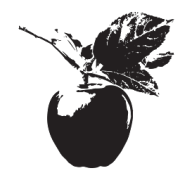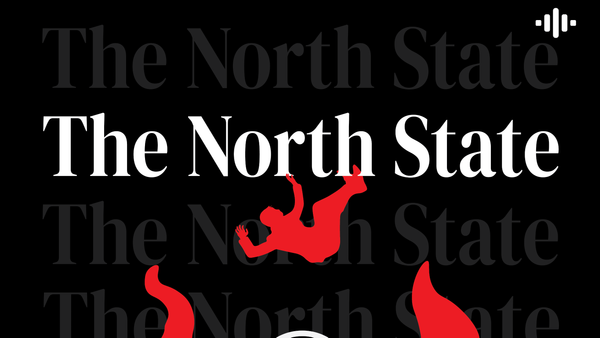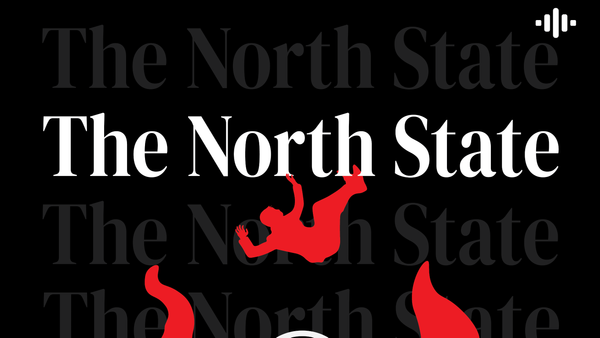Conclusions from a Dismal Year in Journalism
Wrapping up and looking forward
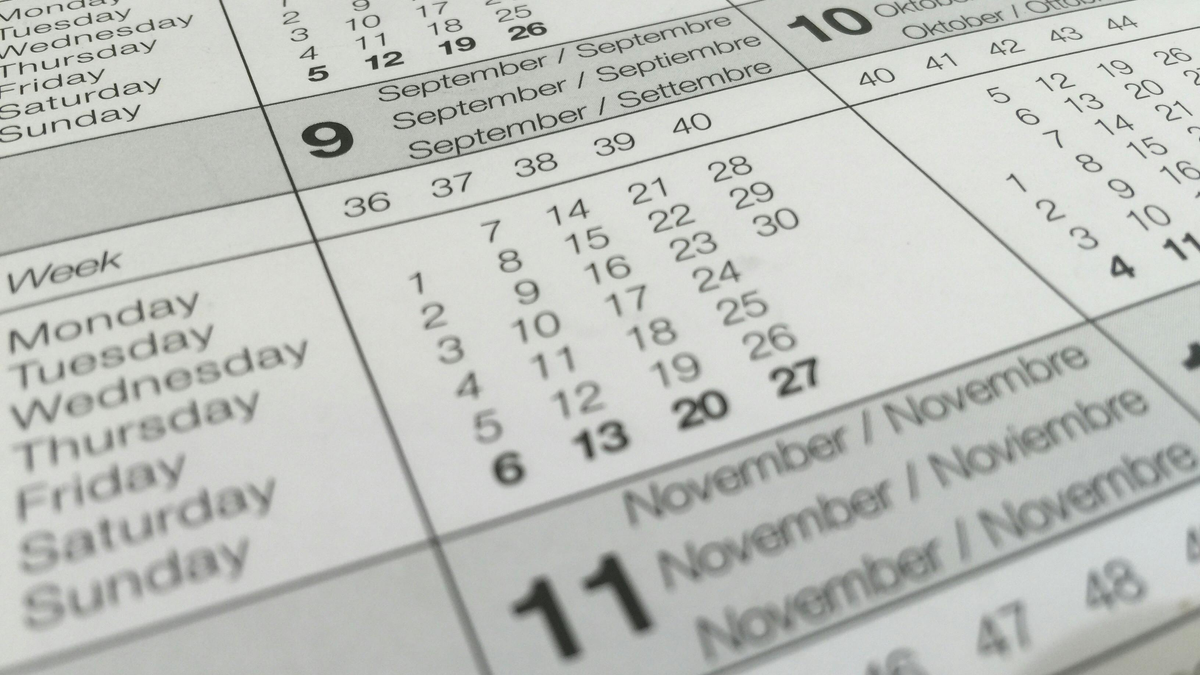
Let's begin this piece with an explanation. I've been unable to properly write The Catch for a couple weeks now. If you missed it in the weekly round-up, I've been working 10-12 hour days during the week for a few weeks now. Add ontop of that working on Saturdays, planning for a move and creating the latest episode of The North State, there's barely been enough time to relax, let alone write an analysis of the latest nonsense from the news media.
There's been a lot to write about. News coverage of the Canada Post strike has been absolutely abhorrent. Coverage of Chrystia Freeland's departure as Finance Minister earlier this week omitted any mention of Freeland's unsavoury political dispositions or the political motivations for her very public condemnation of Trudeau. Most coverage focused on the implications for Trudeau and the personal slights that Freeland experienced which justified her departure.
I watched all of this in the few brief moments I had to myself but was unable to take time to write about it. My apologies.
Moving on, this piece will not be an in-depth analysis piece, as I'm still working long hours, but I found a brief moment to write, so I figured a retrospective of the year is warranted.
First and foremost, Canadian journalism, and the industry more broadly, is in an extremely dire state. Look no further than how they've handled reporting on Israel's genocide in Palestine. The invocation of antisemitism to condemn property damage done during a protest of NATO in Montreal became the nadir of this terrible coverage. We can expect this to continue in our legacy media.
While this is the most crucial point to make about the industry, rot spread in both the independent and popular news spheres. Journalism began 2024 with a series of devastating layoffs in both the legacy outlets, as well as the jaw-dropping implosion of companies like Vice News.
There were also incredible, and continuing, implosions in the independent news media sphere. I've received calls to write another article chronicling the issues going on at CANADALAND, especially stemming from the behaviour of its publisher and once again Editor-in-Chief Jesse Brown. I have a draft sitting with a headline, but I've been unable to do enough work that isn't just chronicling posts, tweets, and internal developments in a cogent manner. His recent platforming of Caryma Sa'd, without reaching out to people like Rachel Gilmore, was particularly damning. Especially since Brown had a meltdown on Bluesky, where he blocked anyone criticizing this move.
Little is to be gained by harping on this point here, but Brown has proven that newsrooms that materially operate under the direction of a single person can't always be trusted. If nothing else, should I become lucky enough to escalate The Catch to any level of news room, he has shown how not to operate your outlet.
As we reach the end of 2024, it's become clear that even supporting independent outlets, by contributing financially and by reading their work, is not enough. There needs to be a complete systemic upheaval. I argued for this in a recent piece, but this is one of the main takeaways of coverage this year. Organizations that hold journalism to account. Workshops to critically examine news. Communities forming channels to engage dialogue with journalists about how they were covered. All of these are tools we can formulate and pursue in the short-term that will yield positive results. These can become regular muscles that will increase in strength the more they're used.
But organizing these projects to the point of needed efficacy is a long-term effort. Reading and supporting good journalism, however, is something someone can do today. Obviously, I would like this to mean an increase in readers and financial support for my work here. If you are not subscribed, please consider signing up for free. If you are a regular reader, or listener to The North State, and you have the means, you can financially support this newsletter. It would allow me to focus more on journalism. After being unable to pursue it due to my regular job, I would really appreciate it.
There are also other journalists and outlets that deserve your support. Add their work to your regular news media diet or financially support them. It would benefit both you and them. So to that end, I've made an incomplete list of journalists and outlets that I recommend. This list does not mean I support everything that they do. In fact, many are operating on Substack, a platform that I have lobbed deep criticisms against. But I've added them because their perspective is valuable and important.
The Orchard

Jeremy's coverage fills in important holes in both Canadian and Alberta politics. He's broken important stories, reported on influential right-wing events and uncovered groundbreaking details in his work. If you want to broaden your understanding of Alberta politics, Jeremy is an irreplaceable source of news.
404 Media

Characterized by co-founded Jason Koebler as "local reporting from the internet," 404 Media, though based in the US, does tech reporting that moves away from the business side of the sphere. Insightful perspectives, niche areas of interest, or even exposing the seedier elements of big tech companies are all regular and original content from 404 Media.
The Maple
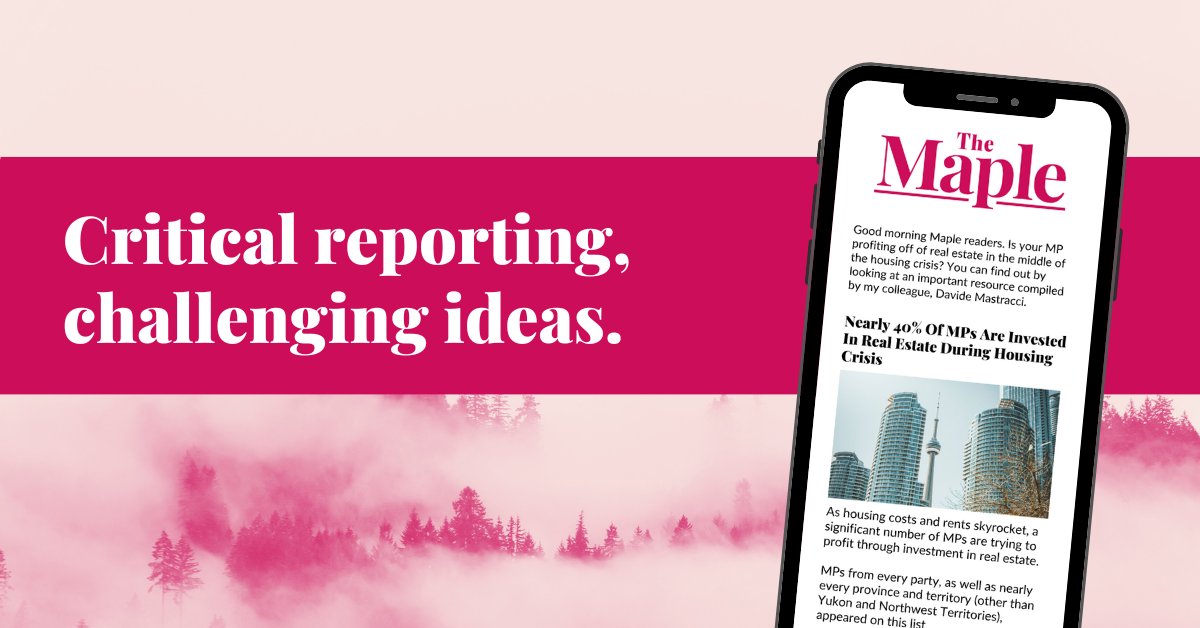
The Maple is one of the best examples of an absolutely miniscule news room punching far above their weight. Their reporting has been raised in the House of Commons, and their work has repeatedly held the federal government to account. Each story reveals important and often ignored areas of politics not covered by other outlets.
Canada Healthwatch

More of a curated feed than an original reporting outlet, Canada Healthwatch compiles important health stories from across the country into one feed for those following certain areas of health. A lot of the COVID stories in The Catch-all come from this aggregator. Canada Healthwatch proves how even projects that don't prioritize original reporting can help broaden our news diet.
Unrigged

Another aggregator that compiles stories from independent news rooms across the country. It's great. I'm also including it because Eric Wickham would be upset if I didn't. Upsetting Eric Wickham is something I don't want to do.
Bubble Pop with Rachel Gilmore

Those familiar with my work are likely to know Rachel Gilmore. Not because we've worked together or anything, but because she's more well-known and we sort of work in the same space. Rachel condenses important Canadian stories in video format to post on platforms like TikTok and Instagram reels. But in January, she's planning to launch her own independent outlet. Supporting work like this is important, especially in the digital realm. Rachel is especially attuned to changing the format of journalism to reach new audiences.
There are far more outlets that I have left out for sake of time and space, but projects like these show the future of journalism doesn't have to be so bleak. While systemic fixes should absolutely be pursued, these are projects we can support now. I hope 2025 is a better year for everyone (even if the election of Trump puts that in extreme doubt), but the best way to ensure better journalism is by taking charge ourselves. Let's stop sitting on the sidelines.


